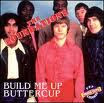Nietzsche, a philosopher, once quoted, “What doesn’t kill me makes me stronger,” and this famous quote is essentially, a conclusion formed about life. It preaches that people grow from their experiences during the course of daily life. The hardships and triumphs, the good and the bad, are all factors of daily life that affect the way humanity grows and matures from day today and all occur in the journey from innocence to experience. Nietzsche’s quote can be applied to the book Fahrenheit 451 because it speaks of growth from pain in daily life.
Niezche’s life inspired him to quote, “What doesn’t kill me makes me stronger.” The fact it speaks that pain in life it necessary, relates to many of Guy Montag’s experiences. After a life of monotony, Montag meets a girl who still notices the subtle miracles of life, in nature and human nature. Because of her nature, she awakens Guy Montag to the world, and because of this he finds himself and who he truly is as a person. He is able to grow and mature now that he is aware of the world around him. Since the beginning of his awakening, Montag becomes aware of the horrible aspects of his life, this is evident when he begins to ask questions which concern topics such as why something happens, or if firemen are picked because of looks as well as talent when he notices that all firemen are nearly identical. Examples of this occur when Montag questions topics such as the mechanical hound and how it knows how to attack its prey, or perhaps when he asks why the Government arrests someone or sends them to the asylum when they were clearly of sound mind. One can tell that Montag is beginning to think on a deeper level, and that his experiences are beginning to help him grow in mental strength, to the point where he is no longer a brainwashed citizen, but perhaps a free-thinking soul asking natural questions as to why something happens.
While Montag’s first experiences with rational thought awaken him to a new side of life and innocence, his later growth and discoveries are on a deeper level. Montag’s experiences with burning books have littered his memory for the past several years, and the experience has been mind-numbing and pleasant, yet now it seems a pointless, futile practice. This compels him to smuggle the contraband into his residence, and immerse himself in literature. One can tell that the experiences of burning books would naturally leave one curious about the content that was being burned. Concluding that Montag’s experiences have developed his conscious, he begins to read the books, and consults an old friend, a former English professor named Faber. Together they begin to form the nuclei of plans to disband the Firemen, and a real change is noticed in Montag during this section of the piece. Out of fear for his own safety, Faber asks Montag to leave his residence, and Montag refuses and successfully convinces Faber of his plan. It’s as if Montag is a new man, for he is determined, focused, and thinking quickly. Montag uses force and intelligence to get his way, and this is quite possibly the segment of the piece where the novel’s relationship with Nietzsche’s quote is most evident because Montag has built on past experience and dangers to sharpen his senses. He effectively influences others to have his way. However, Montag’s awakening does not come without danger and hardships which also speak to the quote, specifically, “whatever doesn’t kill me.” This part comes into action when Beatty catches Montag reading the books, and attempts to burn Montag’s house, yet once again Montag’s regains composure and murders Beatty. This behavior shows that he is in touch with his conscience, and quickly does what he believes to be right.
Over the course of this book one can fully see the growth in Montag. His past experiences and knowledge fuel him, and keeping him moving on, more aware of the world and dangers around him, and feels pain and grows better for it. These factors show that Nietzsche’s quote does apply to the book because Montag grows from past experiences.




